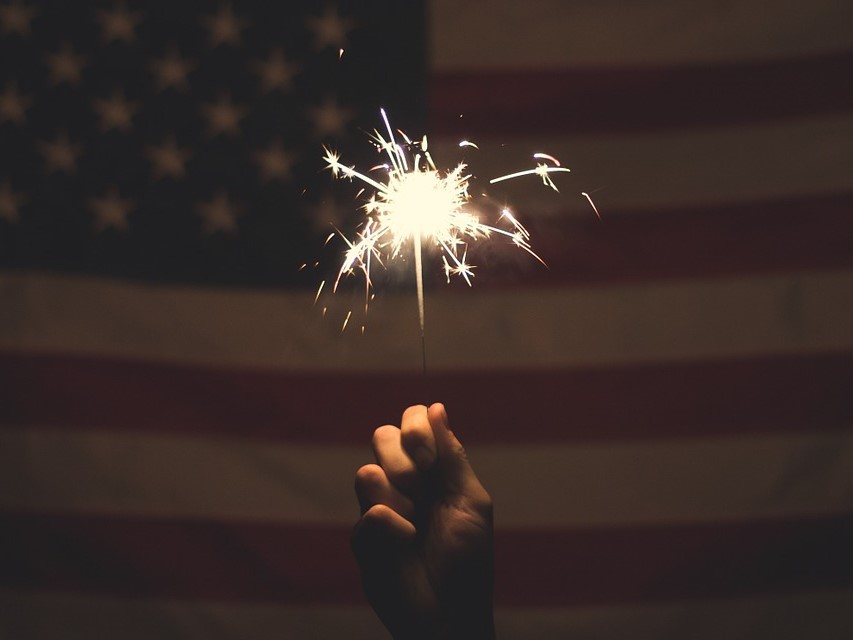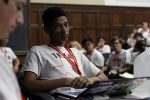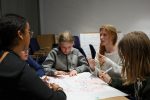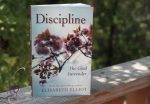What do Bill Clinton, Neil Armstrong and Michael Jordan all have in common? Though it might sound like the opening line of a joke, I first heard the question when I was sitting alone in the center of a conference room in the La Habra City Hall, staring at a panel of individuals. Resting on the table in front of them was an ominous collection of manila folders and clipboards stocked full of charts, questions and graphs. With a slight quiver in my voice, I answered, “They all went to Boys State.”
The American Legion was first founded exactly 100 years ago, when a group of World War I veterans banded together to create an organization that would later brand itself as “one of the most influential nonprofit groups in the United States.”
Today, the American Legion offers a number of services, ranging from a Youth Cadet Law Enforcement program to an Amateur Radio Program. Perhaps their most widely recognized programs, however, are Boys State and Girls State.
Per the California Boys State FAQ page, “American Legion Boys State is among the most respected and selective educational programs of government instruction for U.S. high-school students.”
In theory, Boys State sounds crazy: Take a conglomeration of 1,000 or so high school boys to a nearly deserted campus and offer limited adult interference as they attempt to create and run a working state government. What could go wrong?
After being nominated by my high school, I was assessed in an interview process that occurred both over the phone and in person, in which my brain was picked over a myriad of topics. Though the interviewers were mostly smiles, there was an air of significance to the vetting process. They were looking for the elite.
I arrived at California State University, Sacramento, early on a Sunday morning the summer before my senior year of high school, the age demographic of American Legion Boys State. Immediately, I was separated from the young men I had arrived with and sorted into a random “city” (Bidwell, in my case), which turned out so be half a floor of a dorm building. The 50 young men that comprised Bidwell were part of a county, one of five counties spread around campus. Then the work began.
Campaigns took off like jets on a runway, and it wasn’t long before many of them came crashing down to a cold reality: Only a little over a third of the boys hold an office during the week-long program’s run. The soon-to-be-seniors have the opportunity to run for a city, county or state position, the last of which is the most lucrative.
Boys State is not an experience that the idle will enjoy. It’s tiresome and grueling, with very little down time. For the delegates, it’s more than just a run-of-the-mill summer camp: It’s a chance to test your mettle against the top competitors of your age. I don’t jest when I say that some of the most impressive people I’ve ever encountered walked the halls of CSUS that week.
I had no way of knowing prior to my arrival that my American Legion Boys State experience would be one of the most important of my life. So much of who I am today was the result of that seven-day experiment.
First and foremost, Boys State refined me as a leader. Quite frankly, to thrive at American Legion Boys State, I had to be a leader. Surrounding me at every turn were the best male leaders my age that the Golden State had to offer; to stand out, I had to differentiate myself from others. Decisiveness separated the successful from the disappointed.
The most impactful lesson I learned about leadership, however, wasn’t how to take over a situation. With a thousand high school students vying for limited positions, being louder and more assertive wasn’t my key to success — it was becoming the kind of person other leaders would willingly follow.
At Boys State, my public speaking skills likewise blossomed. During my campaign for a position within the State Assembly, I gave formal and informal speeches before my city and county, engaged in debates and met with more people than I care to remember. Maintaining a polished image was paramount for my eventual election to office.
Moreover, it was during this time that I learned more about teamwork than I ever had before. I was already a captain for my high school’s soccer team and had grown up playing as many sports as I could, but all of that paled to American Legion Boys State.
There were nights when I and my fellow Bidwell citizens would voluntarily forego sleep, congregating secretly in one of the small dorm rooms. There, the small group from Bidwell would scheme and plot through all hours of the night, determined to finish as the highest-rated city of the 22 (Bidwell earned third-place honors). There were pacts and negotiations wagered with other cities, and alliances were quickly formed. Bartering, arguing and deals were commonplace — in just a week, the thousand students had become politicians.
The American Legion program was especially influential for my personal development, as I collaborated with people who held fundamentally different views and ideologies from me. A more diverse net of individuals could not have been cast. With limited adult supervision, differences had to be solved maturely amongst the delegates themselves. Disorder was a hindrance, and drama was subsequently squashed. By the end of the week, I only saw brothers.
The most important change American Legion Boys State instilled in me, however, was motivation. For the first time in my life, I was surrounded by people who had skills, talents and passions in abundance. Some were rich, some were not, but all had a special spark in the way they spoke. Yet, there was never a sense of rivalry between me and my city-mates. Personal success was a ubiquitous goal that bound the group together, so encouragement was widespread. For an achiever like me, it was a perfect microcosm for success.
When I walked out of my CSUS dorm for the last time, I felt far older than I had when I’d arrived. Leaving was bittersweet, as I was exhausted and ready for home, but I also knew I’d never see those incredible young people again.
So if you ever get nominated for the American Legion Boys State or Girls State programs, run with it. Even if you don’t become a delegate, the interview process is great preparation for job applications in the future. But if you do get to go, a word of advice: Give it your all.
After all, you never really know who you’ll be when you walk away from it.
















